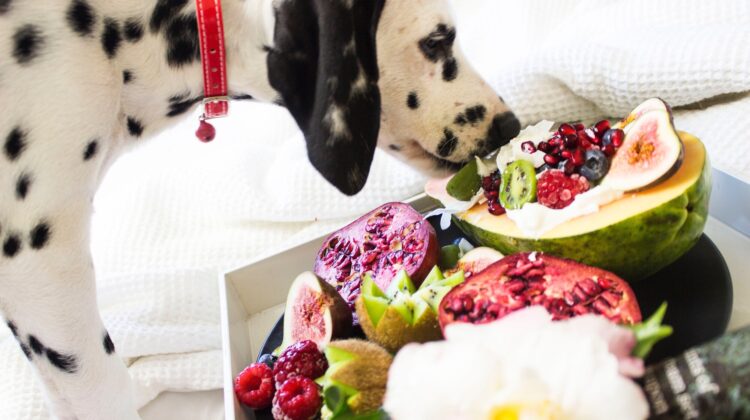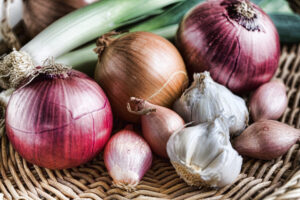
There’s nothing like sharing our favorite food with our furry best friends. If when you are eating you suddenly feel a warm presence over your lap, you know your pooch is there begging for some crumbs. And you don’t hesitate to share some of your foods with your dogs.
As cute as the habit of sharing food with your dog might seem, it represents some serious hazards for their health if you don’t do it correctly. Dogs can’t eat everything that we do. There is a long list of human foods dogs must not eat because they are toxic for them.
That’s why we have developed the best guide of foods that are good and bad for dogs.
Foods Good For Dogs
Let’s start with the human foods we can safely share with our dogs.
When feeding human food to your dog, keep the 90-10 rule in mind. Only 10% of a dog’s diet should consist of treats, while the remaining 90% is nothing but their food. And human food obviously counts as a treat.
Dogs can safely eat all of the foods mentioned below, but in moderation.
Peanut butter

Natural peanut butter that contains nothing but peanuts is perfectly safe for dogs to eat. They even have some health benefits for them, such as acting as a source of protein, fiber, potassium and magnesium.
What is more, peanut butter is a great tool for both distracting your dog when clipping their nails or bathing them, and for creating easy DIY enrichment activities.
Some fruits and veggies
That’s right! There are some specific fruits and vegetables that are safe for dogs to eat, have health benefits and even act as a low-calorie treat.
The fruits and veggies good for dogs are:
- Carrots
- Lettuce
- Broccoli
- Apples
- Bananas
- Blueberries
- Sweet potatoes
- Strawberries
- Watermelon
- Pineapple
- Pumpkin
- Blueberries
- Cucumbers
But though these are food are good for dogs we should not give them in moderation. Too much of anything can be harmful for their health.
Fish
Whether dogs can or can’t eat fish is a question many pet parents ask themselves. The answer is yes, dogs can eat fish, and apart from being a delicious treat, dogs also receive many health benefits from fish.
Dogs need omega-3 fatty acids for a number of things, such as brain development, cognitive function and skin and coat improvement. And fish is a great source for these nutrients. That’s one of its main health benefits.
Nevertheless, many dogs are allergic to fish. That’s why it is recommended that dogs get the omega-3 fatty acids they need from a plant-based source, such as algae oil.
Chicken
Cooked plain chicken is another great source of protein for dogs. But there are two things you must keep in mind before feeding chicken to your dog.
Never ever season it. We know how tempting it is to throw in a little salt and pepper to say the least, but it is absolutely prohibited to give your dog seasoned food. We guarantee you they will absolutely love it as it comes.
You must also remember to remove the chicken bones, since they represent a serious choking hazard for dogs.
Here is a guide of what to do if your dog ever swallows a chicken bone.
Cheese
Cheese is safe for dogs to eat, but in small quantities. Although cheese is not toxic for dogs, it isn’t the healthiest treat either, since it is a processed food high in fat and calories.
What is more, some dogs can be lactose intolerant, and cheese is definitely not healthy for them.
Bread
Dogs can safely eat a small piece of bread as an occasional treat. They can eat plain, whole grain and even wheat bread, if they are not allergic to it.
Remember that bread is pretty high in calories, and your dog should definitely eat the bare minimum of it.
Rice
Plain white rice is another human food dogs can eat from time to time. Since it is easy for dogs to digest, rice is often fed to dogs when they have an upset stomach.
Remember to not add any type of seasoning to the rice when you are cooking it.
Foods That Are Bad For Dogs
Now that we have covered the foods that are safe for dogs to eat in moderation, let’s go through the ones that are absolutely prohibited since they can be highly toxic.
Garlic, onions and chives

Garlic, onions and chives are all part of the Allium plant family and contain substances incredibly toxic for dogs.
Some of the symptoms dogs can experience after eating garlic, onions or chives are vomiting and diarrhea since it can cause gastrointestinal irritation. It can also lead to anemia.
Chocolate and Coffee
As delicious as it might be for us, chocolate is absolutely prohibited for dogs. It contains chemicals called methylxanthines, which are incredibly toxic for pups.
The same happens with coffee, it possesses the same chemicals that can represent serious health issues for dogs.
Some of the symptoms chocolate and coffee can cause on dogs are dehydration, vomiting, diarrhea, seizures, internal bleeding, abnormal heart rate and on extreme occasions it can lead to death.
Avocado
As there are some veggies that are healthy for dogs, there are others that are absolutely prohibited for them, and avocado is one of them.
Avocado contains a toxin called persin that’s highly toxic for dogs. It can cause breathing difficulties, oxygen deprivation and in some cases it can even cause death.
Grapes and raisins
Both grapes and raisins contain an unknown toxic substance that can be fatal for dogs and can cause kidney failure.
The big problem with raisins is that they can be found in many foods that dogs can eat, such as bread. So always make sure to triple check there are no raisins or any other toxic foods when you’re feeding human food to your pup.
Xylitol
Xylitol is a sugar substitute that can be found in many products we consume daily such as baked goods, candy and toothpaste. In many ingredients lists, it can be found as “natural sweetener” or “sugar alcohol”, its chemical denomination.
Xylitol is extremely toxic for dogs, it can cause hypoglycemia, liver failure, seizures, muscle weakness and even death.
What is more, some peanut butters also contain xylitol, that’s why it’s so important to only buy for your dog the ones that have nothing but peanuts, or just make yours at home.
Also, processed food like ham, bacon or pork should be avoided as they contain high amount of sodium.
Alcohol
Never give your pet alcohol or foods containing alcohol consciously or accidentally as it can lead to serious health complications like coma or in severe cases even death.
Other foods which are advised to be avoided for your furry friend include raw eggs, ice-cream, uncooked meat, nuts and cherries. If you still have any doubts regarding what foods to give to your dog, or if you dog ha certain health concerns, consult with your vet and they will be better able to guide you.
Hope you found the article useful. What dog foods do you prefer for your dog?
Leave a Reply